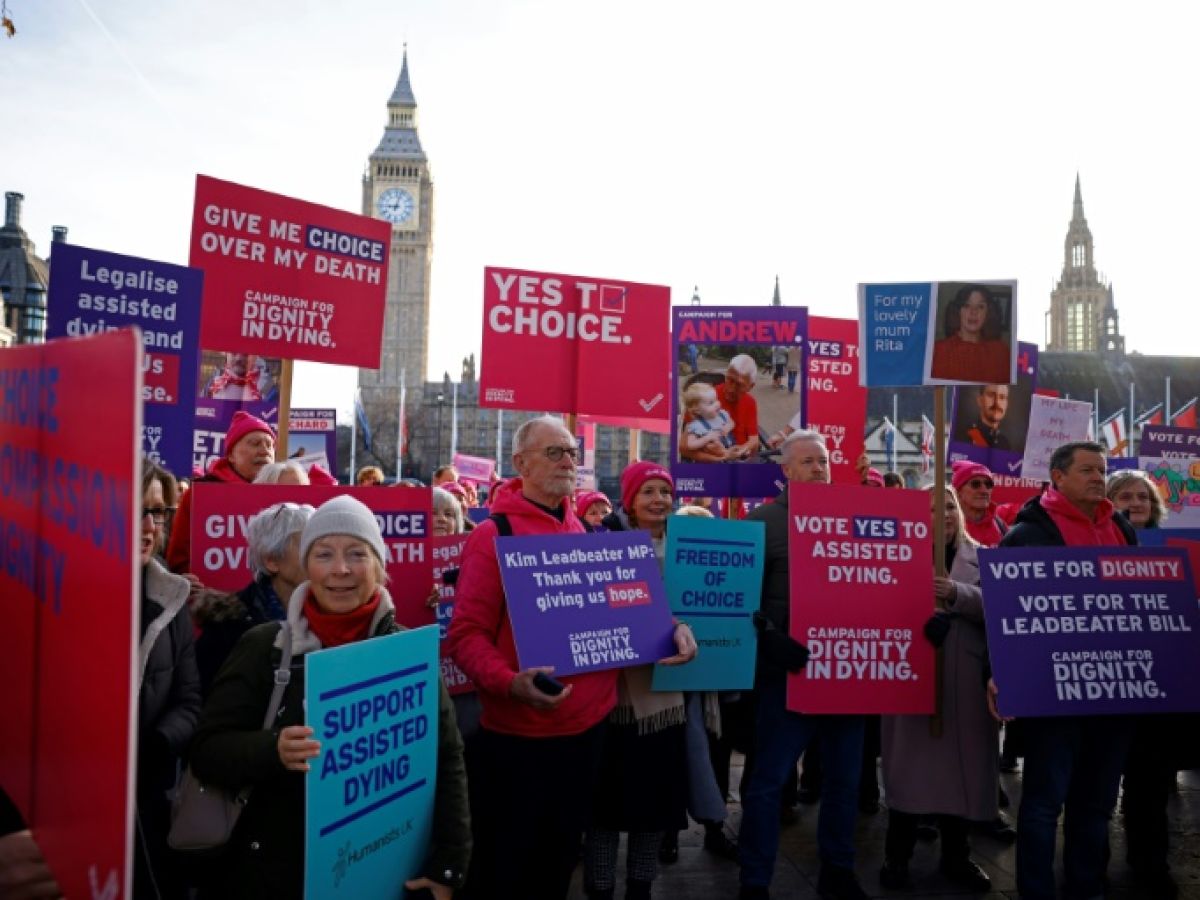British MPs on Friday approved at first reading the legalisation of assisted dying for some terminally ill patients, in a historic vote after an emotionally charged debate.
The bill, which concerns England and Wales, has mobilised parliamentarians across traditional political divides. It will still have to go through several stages before its final adoption.
But nine years after the House of Commons rejected a previous bill, MPs this time voted 330 in favour (275 against) to support the growing support of the British public for the legalisation of assisted suicide, after almost five hours of debate.
Labour MP Kim Leadbeater, who introduced the bill, welcomed the move, telling the BBC that Parliament had been "at its best today" with a "very respectful" debate.
During the examination of the text, she assured that it would give "choice, autonomy and dignity" to adults in the terminal phase of an illness, with only six months or less to live, while stressing that this right would be framed by "very strict criteria".
Patients must be able to make an informed choice and take the substance that causes their death themselves. Two doctors and a judge must give their consent.
Prime Minister Keir Starmer, who had not spoken until now, voted in favour of the text, as in 2015. He had not given his majority any voting instructions.
Dozens of supporters and opponents of the text gathered in front of Parliament on Friday.
– “Best choice” –
Following the vote, the organization Dignity in Dying hailed it as "a historic step towards better choice and better protection for dying people."
The Care Not Killing association, which opposes assisted suicide, said it was "disappointed", while highlighting an "extremely close" result.
Currently, assisted suicide is illegal and carries a 14-year prison sentence for aiding or abetting.
During the debate, many deputies mentioned, sometimes on the verge of tears, the experience of a loved one to support their support or opposition to the text.
Kim Leadbeater told the story of Norman, a man who had prostate cancer for 15 years and "shot himself in the head" when the pain became unbearable.
The current law "is unclear and does not protect patients, families and health workers, which pushes people to desperate actions," she added.
For several weeks, the prospect of the vote has raised an intense debate on ethical, religious and also financial grounds.
Around thirty spiritual leaders had expressed their "deep concern", worrying that fragile people felt a "duty to die" to relieve their loved ones.
"How can we guarantee that an elderly person in a care home, who has been given six months to live, will not say to themselves: 'I am a burden... if I end my life now, my family will be able to save £25,000 to £55,000'?" asked Richard Burgon, an independent MP.
– “Guarantees and protections” –
Rather than assisted dying, many opponents have called for better funding for palliative care, at a time when the public health system is in deep crisis.
Kim Leadbeater assured that this text of law contained "the strongest guarantees and protections in the world", and had "nothing to do" with those of Canada or Belgium, with much broader criteria.
The text must now be examined in committee, before being submitted again for approval by both houses of the British Parliament.
During these stages "we must address all the issues that have been raised today", citing palliative care, the rights of disabled people and the state of the health system, Kim Leadbeater acknowledged on the BBC.
Scotland, which has devolved health powers, is due to vote on its own bill in 2025. The Isle of Man is also considering legislation, while the Channel Island of Jersey has agreed to prepare legislation by 2027.

